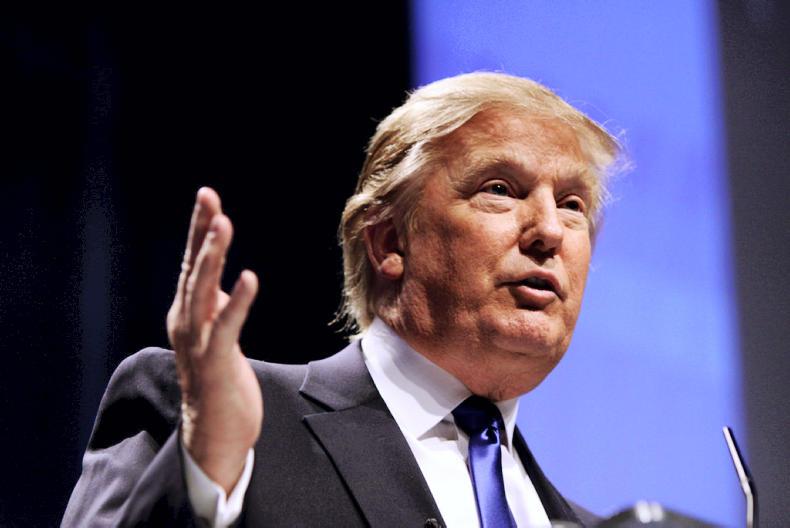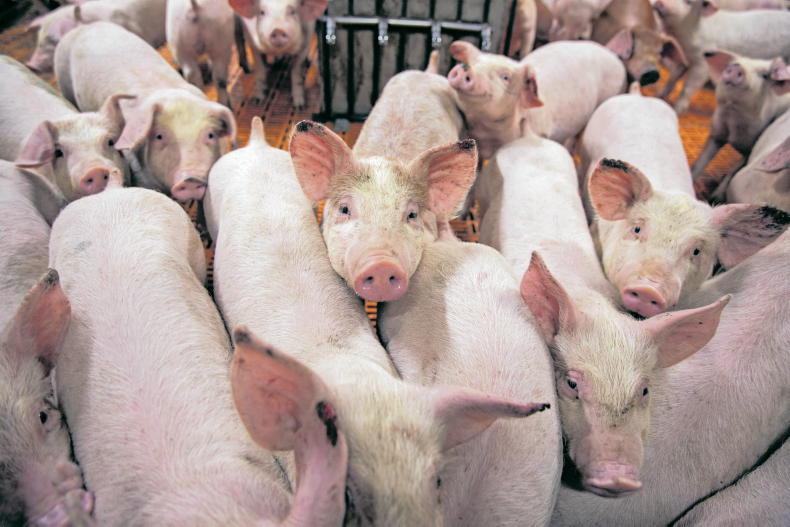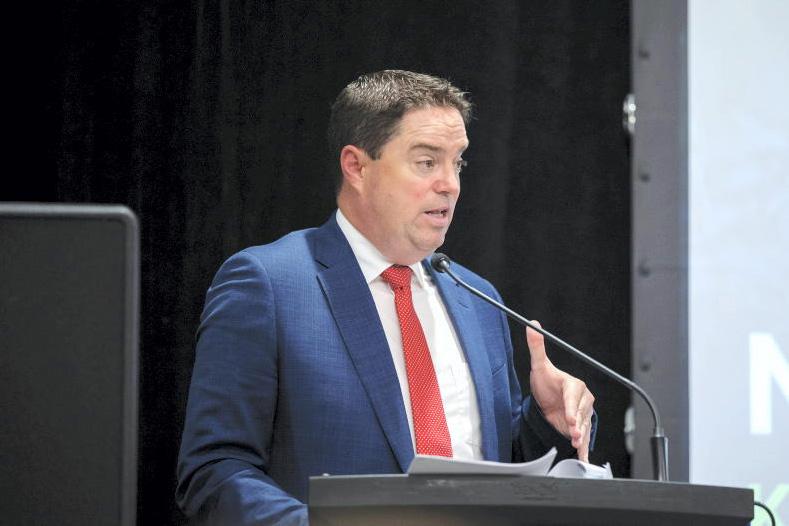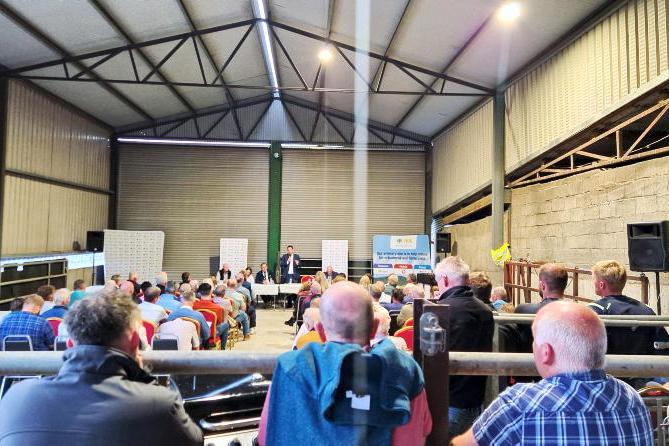The world woke up on Friday June 24 to hear that the UK had voted to leave the EU. The reality came as a shock to many people. An even starker reality was that many were apparently startled to realise what they had voted for.Just as the reality of Brexit came as a shock in the UK, this morning Americans are learning that they've elected President Donald Trump.
The world woke up on Friday June 24 to hear that the UK had voted to leave the EU. The reality came as a shock to many people. An even starker reality was that many were apparently startled to realise what they had voted for.
Just as the reality of Brexit came as a shock in the UK, this morning Americans are learning that they've elected President Donald Trump.
I’ve spent the past week travelling around the Midwest, namely the states of Illinois, Minnesota and Wisconsin. This is farming country. Red Barns and maize corn dominate the landscape. And like everything in the US, the fields, the tractors and even the farmers are big here.
It seems it is coming down to a choice of which candidate is the lesser of two evils
It seems there is a real shock among anyone I meet as to how the most powerful country in the world ended up with a Trump v Clinton election. Some refer to it as a soap opera. But what is clear is that Americans, similar to the British, want real change; especially those in rural America. They are tired of the status quo, especially those working in agri-machinery or food factories I’ve visited in this area.
It seems it came down to a choice of which candidate is the lesser of two evils. In general, they did not trust Clinton, saying she is a career politician. They are afraid of Trump but feel he may be the catalyst that the country needs to ignite change and “make America great again”.
Either way, this is a worrying way for a country to select its next leader. Politics is clearly broken. So given that he now looks more than likely to be the next US president, what would a Trump presidency actually look like and how would it impact Irish farmers?
The ending of the free trade era?
The Obama administration may go down in history as the highest point of the free trade era.
The world is certainly an easier place to do business globally than eight years ago.
However, a Trump President looks like it would sound the death knell for future trade agreements, turning the US into a more inward looking country.
The Transpacific Trade Partnership (TTP), which was to have been the biggest regional free trade agreement in history, would be scrapped. This is significant no trade deal of this size has been seen since the 1994 completion of the Uruguay Round of the GATT world trade talks that created the World Trade Organisation. The same plight is almost certain for the Transatlantic Trade and Investment Partnership (TTIP) with the EU.
It could topple Kerrygold off the number one imported butter position in the US
This could make Irish agri-food exports more difficult to the US due to an increase in import duties and tariffs. Irish products such as cheese and butter would suffer. It could topple Kerrygold off the number one imported butter position in the US. Exporting high-end beef cuts would almost certainly be off the table.
However, on the other hand it would make imports of US beef and dairy more difficult into Europe.
One potential beneficiary of the scrapped trade deal talks is the UK. It opens the door for the UK to negotiate its own bilateral trade deal with the US, therefore giving the UK access to the largest meat and dairy producer in the world while providing the US access to the most advanced and sophisticated grocery markets in the world.
Similar to what was seen with Russia and the western food ban, this would displace Irish and EU food products, fuelling volatility while reducing prices. It is also likely high tariffs will be placed on Chinese imports to encourage bringing jobs back.
This will significantly increase risk and uncertainty. That unnerves investors and business decision-makers. US companies will temporarily freeze plans while they try to figure out what a President Trump is likely to do. Economic growth could temporarily slow.
Pro-US agriculture
The US has never before been so involved in global markets. For example, it now exports about 14% of its 96bn litres. This is some 13bn litres, or about twice the size of Ireland’s milk pool. If the US turns the supply tap on or off, the world’s farmers feel it.
How US farmers are doing economically affects Irish farmers directly
How US farmers are doing economically affects Irish farmers directly. The Trump administration would be a pro-agriculture administration. His commitment to the US farmer is perhaps best outlined with his comment: “family farms are the backbone of this country and we are going to end this war on the American farmer”.
He has said that he will reduce the power of government bureaucrats, and increase the freedom of farmers to be as productive as possible. He said he will reduce regulation and red tape for farmers and “extreme environmentalists” will no longer be entertained. He has also commented that “US farmers care more for the environment than the radical environmentalists”. He also has said that many of the environmental regulations are being used to oppress farmers instead of actually helping the environment.
Trump wants to eliminate the EPA (Environmental Protection Agency)
He does not support labeling foods made with GMOs. It also looks likely that he won’t be initiating any other restrictions on the use of biotechnology in agriculture.
He plans to lower the tax rate on family farms down to 15%. He wants to protect the Renewable Fuel Standard and he wants to eliminate the EPA (Environmental Protection Agency).
That means it looks unlikely he would do anything to support organic agriculture, and means loosening restrictions on the use of agri-chemicals. He has also called for separating the Supplemental Nutrition Assistance Program (food stamps) from the farm bill.
Conclusion
All of this paves the way for a very pro-farmer environment for US agriculture. Europe has decisions to make, especially as the first talks of CAP reform start next year.
The European farmer’s field will not only be uneven but will have huge rocks in it
Already playing on an uneven field, with no access to GMOs and increasing restrictions on the use of glyphosate and other chemicals, the European farmer’s field will not only be uneven but will have huge rocks in it.
Does Europe want to allow the European farmer compete on the global stage? If so, how will it support this given that an increasing amount of obstacles are placed in front of him?
Read more
'Will we be allowed to feed 9.6bn people by 2066?’
Danone goes GM-free in the US









SHARING OPTIONS